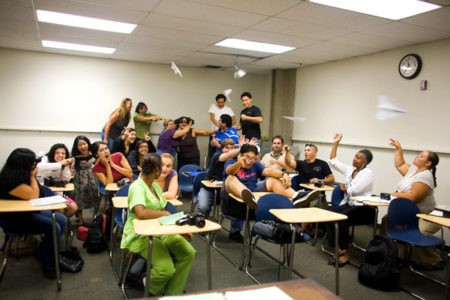By Gavin Mackintosh-
Boys have beaten girls to the top A-level grades for the second year running with 8.5 per cent of male candidates achieveing A*s, compared with 7.6 per cent of female entries.
Girls have consistently beaten boys in A levels for nearly two decades, but that trend was reversed in 207 when boys took the lead for the first time in many years. Boys were ahead on A* grades, but now they received the majority of A* and A grades, and their progress continued this year. The lads led the way with 26.4 per cent of boys gaining these top grades compared to 26.0 per cent of girls, a marginal but clear difference.
There is no precise explanation for why one gender group beats the other, it may simply be down to chance or the fact that the higher standard of A levels has got boys preparing a lot more seriously this time whilst girls put on their usual attitude of seriousness. 8% is not a very high level, but considering the high standard required for these performances, the higher performance by very clever boys is still impressive.
In French and Spanish, boys outperformed girls in the category of A* and the A/A* rate. However, in geography, girls outperformed boys, maintaining the higher results produced in 2017. This year, 6.8 per cent of girls gained an A*, compared with only 3.8 per cent of boys.
For A* and A grades the figures were 29.7 per cent for girls, and just 19 per cent for boys.
Results in Spanish were closer between girls and boys this year , with a ratio of 10.6 per cent of boys gaining an A* this year to 10.4 per cent of girls, compared with 11.7 per cent of boys and 10.0 per cent of girls last year. Comparing performances of boys and girls is one way of motivating both genders to adopt and earnest approach to their studies, raising their work ethic and building their appetite for success.
This current batch of A-levels includes 13 newly reformed in ancient languages, dance, drama and theatre, geography, modern foreign languages, music, physical education, and religious studies. Most other subjects were reformed last year, although maths changes are still ahead.

